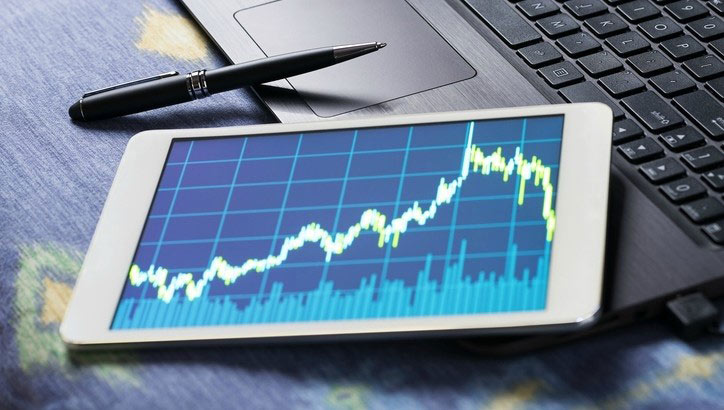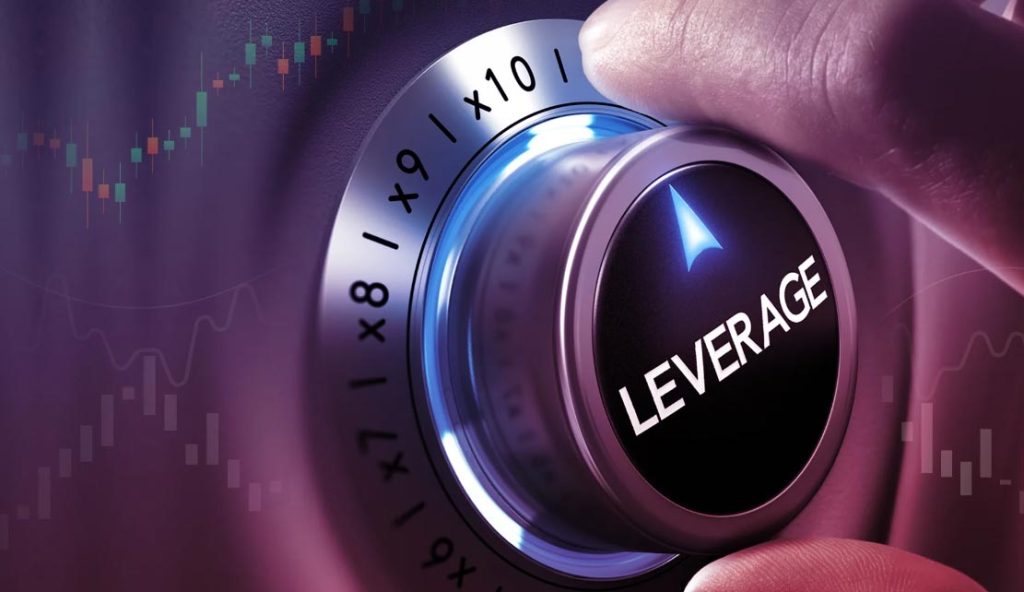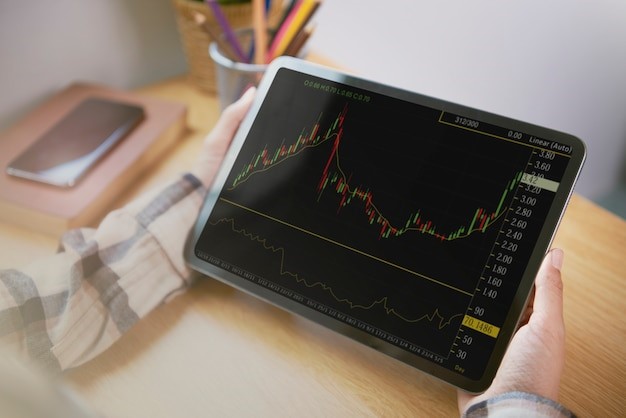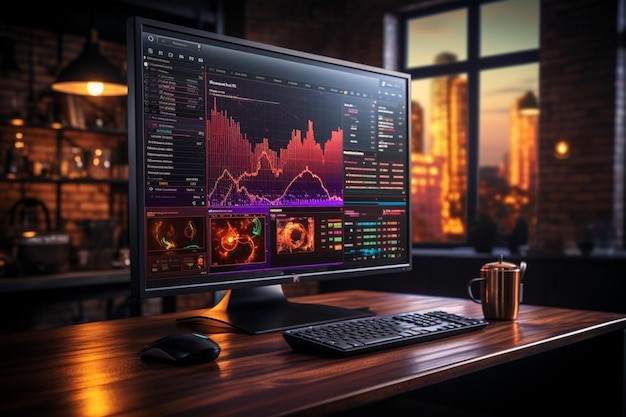


What is Margin Trading in Forex?
August 14, 2023
Being involved in Forex trading, you may have heard the term margin Trading mentioned in Forex and contracts for difference (CFD) trading. Alternatively, you might initially find the term completely new and a bit weird. Here at Aron Groups, we are going to provide you with a thorough guide about how margin works in Forex trading and how you can use it to make more money. First, we will discuss what the margin is in Forex Trading. Then we will talk about the margin required for Forex Trading, how to calculate the margin of Forex Trading, and the profit of modern trading in Forex. So, stay tuned to learn everything you need about this type of trading.
Table of Contents
What is the margin in Forex Trading?
Margin is a portion of the client’s account balance locked up to order trade. Imagine trading. It would be best if you had a broker to open positions in the Forex market. The broker will provide you with the margin required for Forex Trading.
In Trading Forex using margin, you are required to put up a small amount of capital to open a new position; the capital you’re providing at this stage is called margin.
For example, if you want to purchase $200,000 worth of EUR/USD using margin trades, you don’t need to put up the full amount of front; you are only required to put up a portion of that amount depending on your Forex broker margin plans.
For example, when you’re Aron Groups, you’re provided with different trading accounts, each providing you with different leverage from 1 to 1000. But what does it mean?
In this case, you will provide the collateral or the margin we have talked about into your trading account to cover some of the risks that you might generate for the broker, the collateral is determined through the margin required by your Forex broker, and then the broker will provide you with the maximum leverage according to your trading account.
Not all Brokers provide the same margin requirements, so it is necessary to understand the margin requirements of your chosen broker before trading a margin.
Trading on margin means you can enter a larger position and multiply your profit, but at the same time, there are other consequences as well; if the market doesn’t move according to your speculations, you might experience potential losses.

How does margin trading work?
Simply put, margin involves borrowing money from a broker to increase the size of a position and multiply the returns. For instance, when you use margin accounts when buying Forex, margin enables you to open larger positions and buy more currencies than you’d be otherwise able to buy with your own capital; by doing so, you are multiplying your returns but also possible losses.
How to calculate margin Forex Trading?
We should go through an example to understand how to calculate Forex margin. Let’s say you use a Vip (ECN) Account in Aron Groups Broker, which provides you with 1:200 Leverage for Forex Trading. 1:200 means you are required to provide 1 unit of the currency for every 200 units of that currency. The 1 unit you provide will be locked up as margin or collateral. If you want to open a $100,000 position using a margin tray, you must only provide $500 as collateral. The $500 you provide with locked up.
The margin you are required to deposit into your margin account is calculated as a percentage of the position size and according to the base currency of the currency pair traded.
Your trading accounts currency, and the base currency should be the same; otherwise, the required margin will be converted to your account denomination.
If the base currency in the currency pair and your accounts currency is the same, the required margin is calculated to the following formula:
- Required Margin = Notional Value x Margin Requirement
But if the currency of the pair and the currency in your account are different, you need the following formula:
- Required Margin = Notional Value x Margin Requirement x Exchange Rate Between Base Currency and Account Currency
Read more: Forex Trading platforms

Advantages of Margin Trading
There are many benefits of using this strategy when trading in Forex. Here we are going to go through some of them:
Leverage
Leverage is a fascinating term that not all brokers will provide you with. Using leverage means you have greater purchasing power. Without leverage, you can only buy Securities and currencies with your own money, and if you don’t have enough money to pay the entire purchase price, you will lose the opportunity.
But then you buy and sell margarine; you are opening larger positions with borrowed money from the broker, which means you’re not limited to your funds.
Multiplies profits
Trading in Forex using margin trading with leverage can multiply your potential profit. If the price of the assets you own rises, the value of the collateral you have provided will write as well, and at the same time, because you have entered a larger position using leverage, you will obtain more profit.
Flexibility
You can use other types of loans when trading in Forex, but margin accounts don’t have a fixed repayment schedule. You are required to provide a margin, and then you have to repay the loan when the currency pair is sold.
Risk of trading a margin
Interest
Trading our modern is not free, and you have to pay the interest on the money you borrow from the broker, which is different from one broker to the other.
Margin calls
The broker will require you to provide extra money if the margin value you have provided needs to be higher. In this case, you will face a margin call to maintain the minimum requirements.
Liquidation
Trading of margin is a perfect strategy, but the broker needs to take safety measures and avoid further losses. So, if you don’t deposit enough cash by the deadline, the broker reserves the right to liquid the securities purchased on margin, and you might not even be notified.
Bigger losses
trading emerging means multiplying your profit, and at the same time, it can magnify losses; there are always two sides to a coin; if the value of the security rises, you will make a profit, but if the security you have bought a margin it starts a downtrend you will suffer a loss because you do not only lose your Equity investment, but you are in debt. You need to repay the loan you have taken from the broker.
Read more: ChatGPT forex trading

Who should be using modern trading?
Remember that just like any other strategies on Forex, margin Trading is not for everyone. Generally, only experienced investors are comfortable using margin Trading. If you are new to the market, there are better strategies than margin trading because it is a high-risk gamble that can wipe out all your investments.
But if you were insisting on trading a margin, first, you need to have enough money to cover potential losses. Then it would be best to learn everything you can about trading or margin before opening a position. Because the broker has to liquid your account to compensate for potential losses, you could lose a significant amount of money.
In a nutshell
training a margin can be a fantastic and exciting experience for every Trader, but it’s not recommended to trade on margin as a beginner. Only experience Traders can calculate profit margin in Forex Trading and use this strategy to their advantage.
Trading a margin means you can borrow money from the broker and enter a larger position, which means bigger returns. You can magnify your profits, and at the same time, there is a good chance of magnifying losses if you’re not familiar with margin Trading. Here at Aron Groups, we’re providing you with margin accounts and educational materials to help you become a professional and experienced trainer who knows how to use Market opportunities and make fruitful investments. So before involving in margin trading, start to learn everything you can, and if you have any further questions, consult with our experts to find the answer to your important questions.














